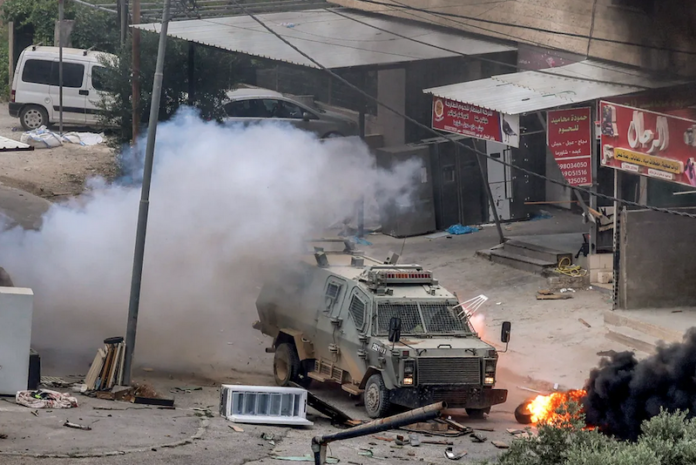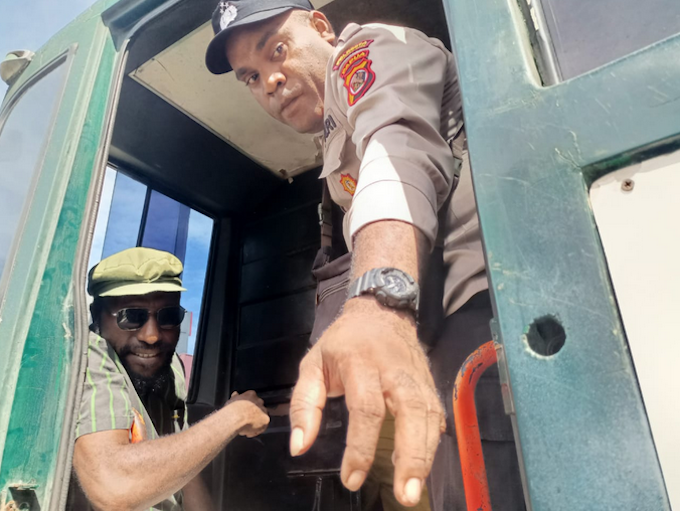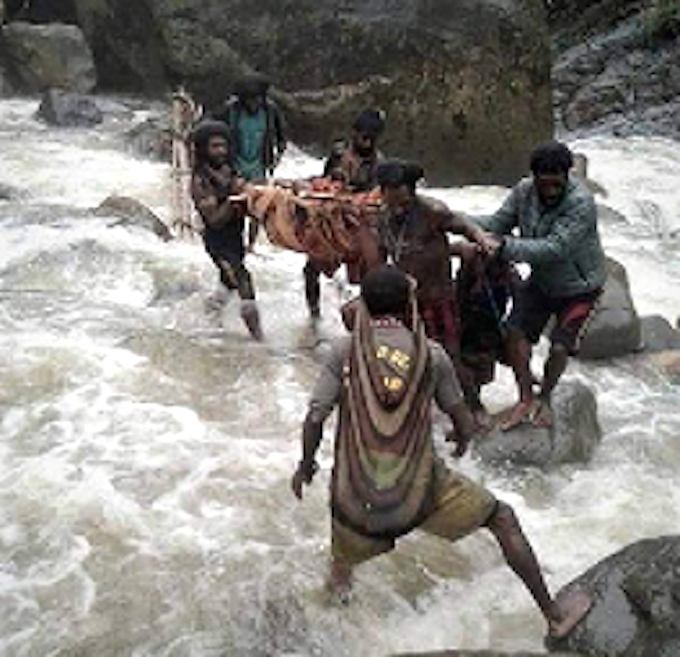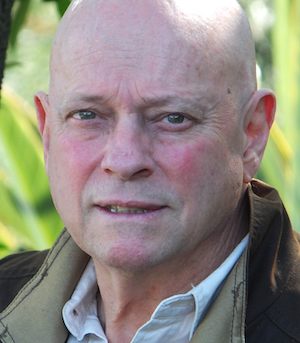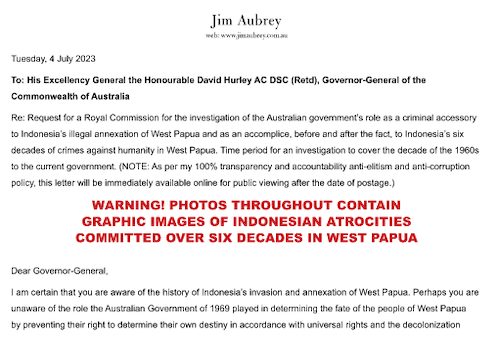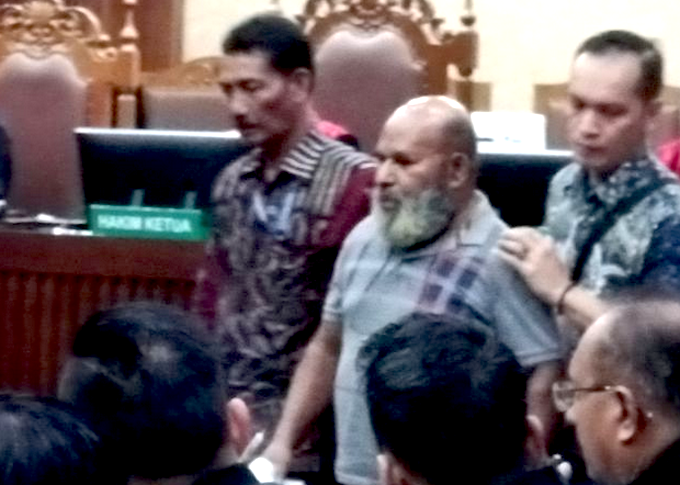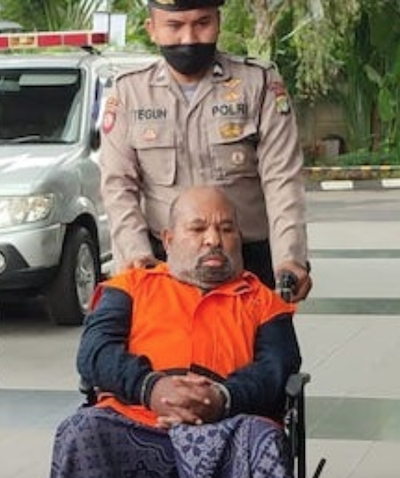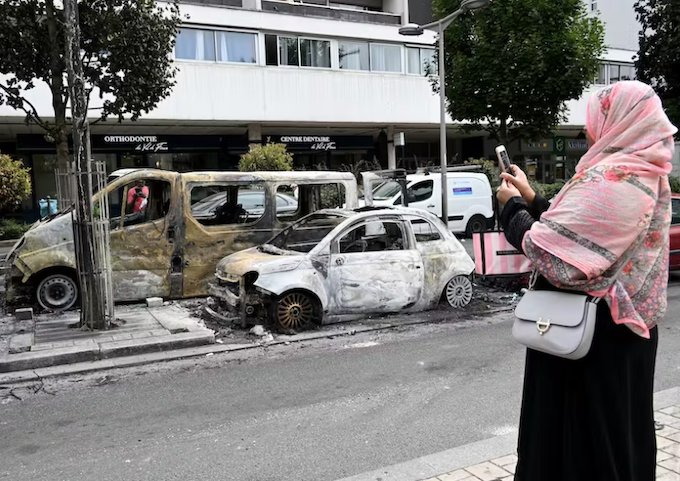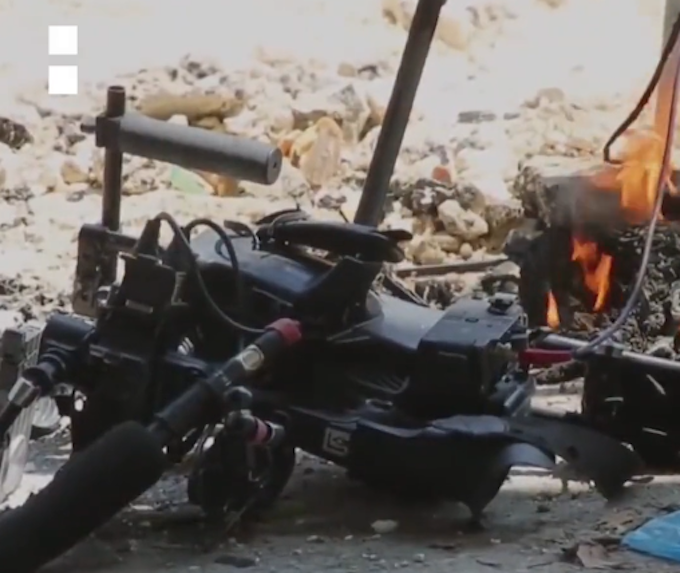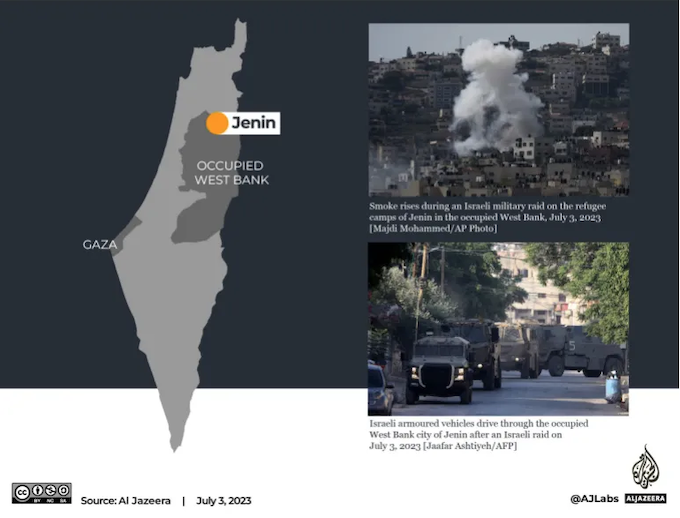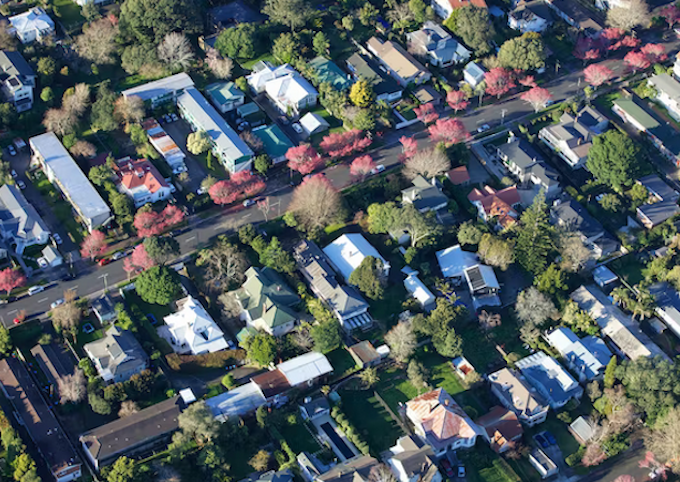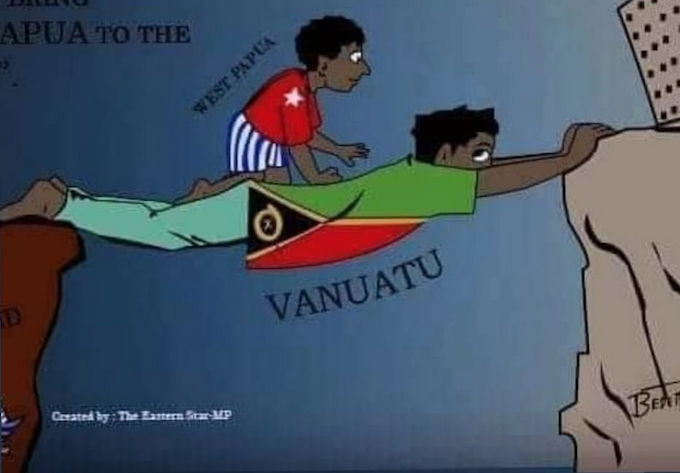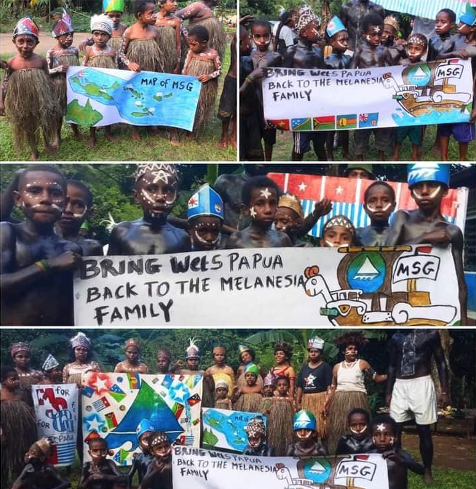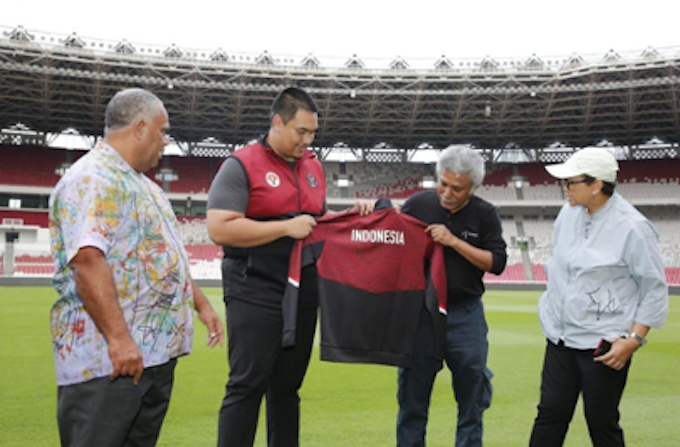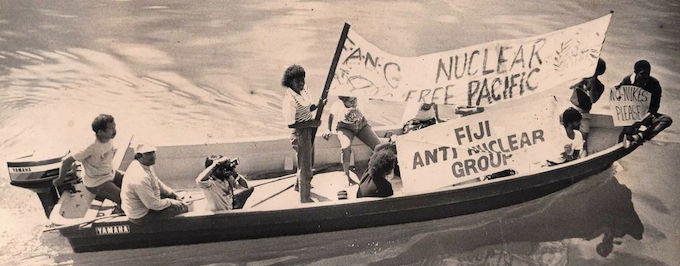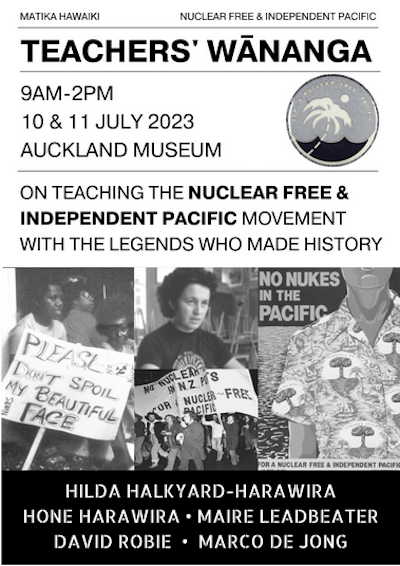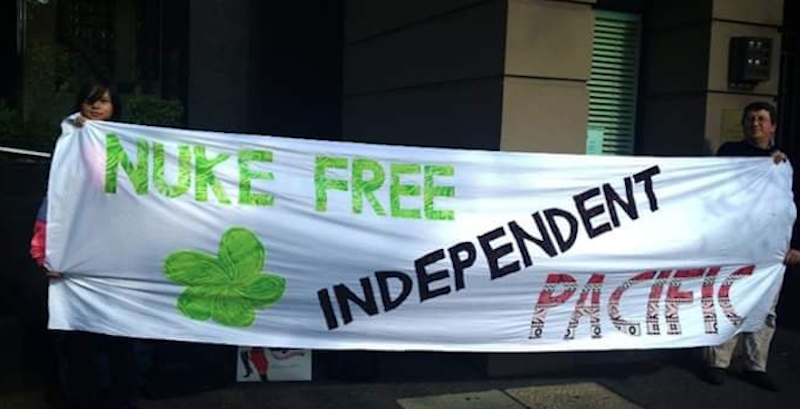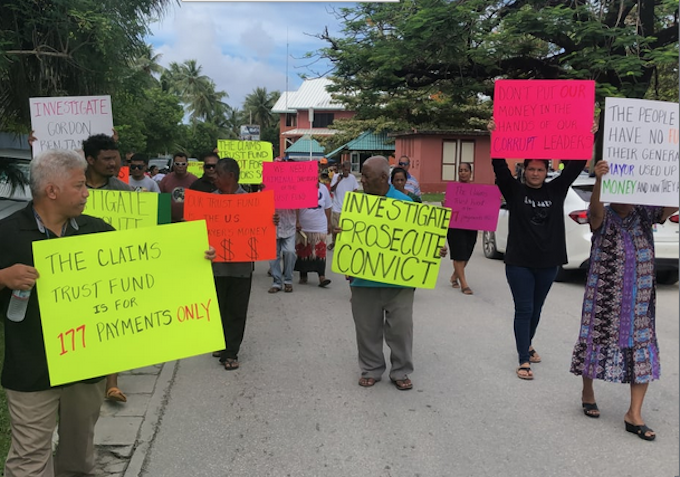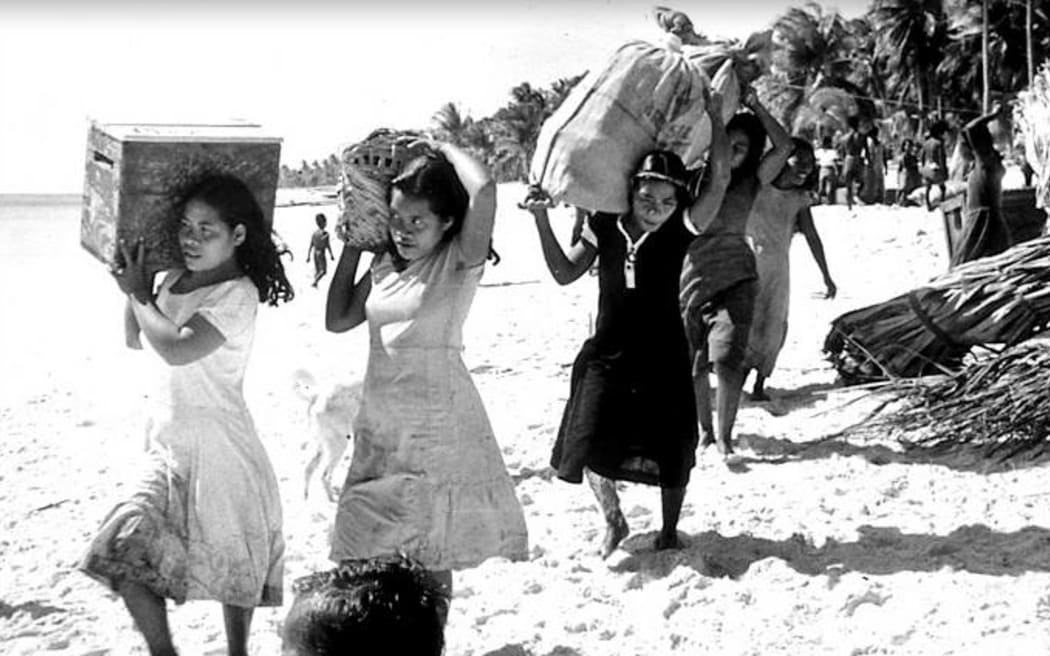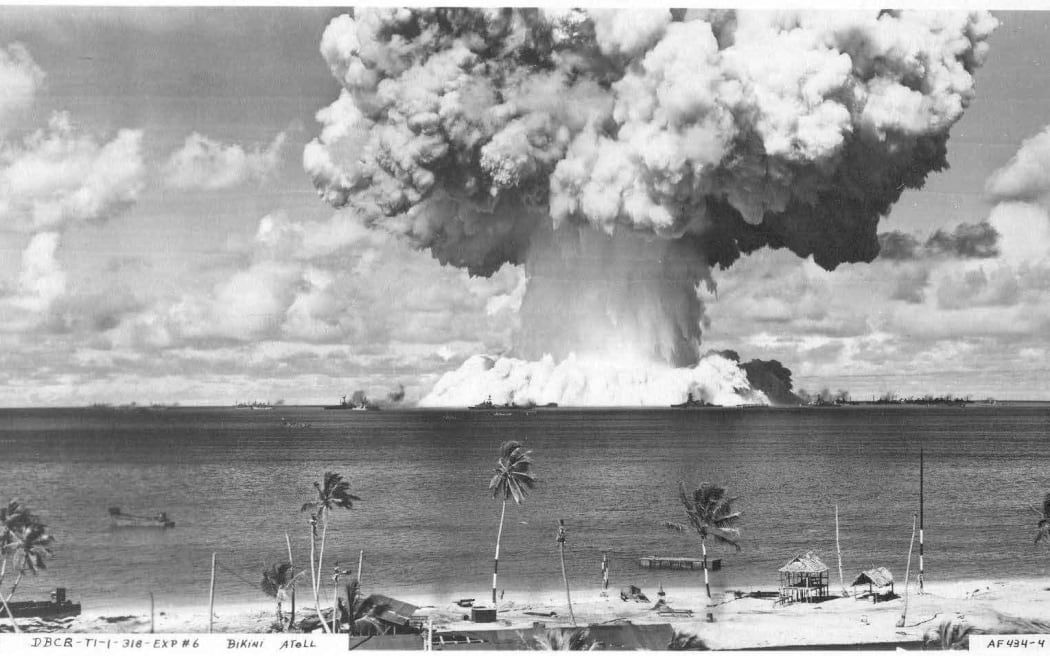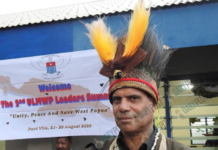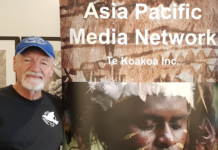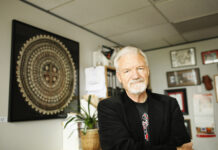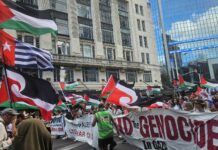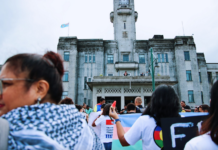By Gordon Campbell
So far, the coverage of the Israeli Defence Forces (IDF) assault on the Jenin refugee camp has followed a familiar pattern. Images of explosions and rising plumes of smoke have been punctuated by footage of anguished/angry Palestinian civilians at funerals for family members and neighbours.
As the Columbia Journalism Review once noted, television news editors find it hard to resist images of rocket fire.
“Military action dominates breaking news coverage of conflicts overseas, which perpetuates old narratives. The focus becomes the latest violence, the number of rocket attacks, and the ensuing death toll. That framing omits critical perspectives from the communities themselves, and continues a trend of presenting half-true storylines.”
- READ MORE: Why the Western media lied about Israel’s Jenin siege
- Israeli forces raid Jenin refugee camp
There is an obvious double standard in the media treatment of Ukraine and occupied Palestine. The same practices — the bombing of population centres, the collective punishment of civilians by destroying essential infrastructure — are treated very, very differently.
Russia’s brutal and illegal actions under international law are routinely denounced, as they should be. But Israel’s near-identical behaviours? Not so much.
In fact, the context-free narratives of Israeli “soldiers” versus Palestinian “militants” tends to be slotted into journalism’s beloved reduction of complex issues into tit-for-tat, this side/that side reportage. In occupied Palestine, this false equivalence ignores (a) the vast imbalance of military force in play and (b) the equally large imbalance in the deaths, injuries and habitat destruction. It also skates over the explicitly stated intentions of Israel’s National Security Minister Itamar Ben-Gvir, as reported only a fortnight ago:
“Israel’s far-right national security minister has called for a wider military operation and intensive illegal settlement campaign in the occupied West Bank, according to local media.”
“‘There needs to be full settlement here. Not just here but on all the hilltops around us,’ said Itamar Ben-Gvir . . .
“‘We have to settle the land of Israel and at the same time need to launch a military campaign, blow up buildings, assassinate terrorists. Not one, or two, but dozens, hundreds, or if needed, thousands,” he added.”
Killing thousands, if that’s what it takes? In effect, Ben-Gvir was calling for a pogrom against those standing in the way of Israel fulfilling its mission to settle “the land of Israel.” Meanwhile, the world stands by wittering about how the West Bank settlements pose “an obstacle to peace” and to achieving the mythical “two state solution.”
Gordon Campbell: On Relying On Israeli News Narratives About Palestine https://t.co/MrllzKfZSM pic.twitter.com/DUHG1zDu7L
— Scoop News (@ScoopNZ) July 6, 2023
Casualties of war
The chronic casualty imbalance across the occupied West Bank and Gaza has always reflected a reality where stone-throwing Palestinian teenagers and a smattering of poorly armed Palestinian militia have been up against one of the world’s most powerful armies — a force willing to unleash air strikes, drone-fired missiles, tanks and snipers on crowded communities.
To some extent, that striking double standard between the coverage of Ukraine and Palestine has been a function of the media’s selective use of sources. Routinely, the Western media coverage gives more space — and thereby, credence — to the IDF and Israeli government narratives of the conflict.
Reports on Jenin by the BBC (carried on RNZ) have passively repeated Israeli claims that this is a “counter-offensive” inspired by Palestinian provocation, and aimed at rooting out “terrorists “and “militants.”
In a grotesque inversion, a BBC correspondent interviewed this week by RNZ spoke of the “targeting” of Israeli settlers by Palestinian youth. This is despite the escalating series of deadly attacks by settlers this year on dozens of small Palestinian villages, dotted across the West Bank.
Settlers (backed by the IDF) have systematically terrorised Palestinian families to enable the expansion of existing settlements on the West Bank, and the building of new ones.
International laws and outlaws
Repeatedly, New Zealand talks up the need to support the norms of international law. Supposedly, small countries like ours depend on the maintenance of a rules-based international system. Yet we choose to support those norms very selectively.
China’s intimidatory actions in the South China Sea? We abhor them. Yet last November New Zealand abstained from a UN resolution that — among things — condemned Israel’s seizure in 1967 (and occupation ever since) of the West Bank and Gaza, while also denouncing Israel’s related failure to abide by the international laws incumbent on it as the occupying power.
New Zealand’s explanation for sitting on the fence was that (a) it hadn’t had time to consider the resolution properly(!) and (b) it had misgivings about the definition of “annexation” used in the UN resolution. Really?
Given that Israel has been the occupying power on the West Bank for the past 56 years, and given its long track record of expanding its settlements on Palestinian land, the sight of New Zealand taking fright about the threshold definition of “annexation” was shameful to behold.
For the record, on war crimes . . . The Jenin refugee camp was created in 1953, to house Palestinian refugees and their families displaced by the foundation of Israel in 1948, and by subsequent conflicts. Generations of Palestinians have known no other home. According to UNRWA estimates, some 13,000- 15,000 Palestinian refugees or 22,000 (according to Al Jazeera’s estimate) are packed into an area only a half a square kilometre in size.
Similarly, the people of Gaza are also penned into a confined area. The entire Gaza Strip holds an estimated 2 million Palestimians on some 365 square kilometres of land.
By some estimates, Gaza is the third most densely populated territory in the world.
Air strikes punish civilians
Air strikes on such dense population centres cannot help but (a) kill and injure large numbers of civilians, and (b) collectively punish civilians by destroying their homes, schools, hospitals, mosques, roads and capacity to generate electricity.
Reportedly, Israel’s current military operation in Jenin has trashed the refugee camp’s basic infrastructure.
Under international law, these collective punishments are war crimes. If we denounce such actions when Russia does them in Ukraine, why are our politicians — and media — so reluctant to do likewise when Israel happens to be the perpetrator?
Instead…. In reporting on the military attacks on these densely packed enclaves, the Western media has passively repeated Israeli propaganda that the IDF air raids, drone attacks, tank onslaughts etc on civilian homes and neighbourhoods are “pin point” and “precise” and “seek to avoid civilian casualties.”
Ultimately . . . Media accounts carried by NZ news outlets heavily rely on Israeli narratives and framing language, either directly, or via the BBC and US networks. These Israeli perspectives have dominated the reporting on the deadly raids on Gaza, the ongoing evictions of Palestinian families from East Jerusalem, and now, in Jenin.
As mentioned above, Palestinian voices are almost entirely absent, beyond the occasional soundbites from anguished victims.
Why are there so few appearances in our media by Palestinian journalists, academics or regional analysts? Such people exist. They’re out there every day challenging the version of events being put forward by the IDF (and Israeli government) sources. Why aren’t we hearing from them and reading them in our own news reports?
Protests over Shireen
To be fair, some journalists have jointly protested about the failures of the West’s media coverage of Palestine. The Columbia Journalism Review’s report on last year’s killing of the prominent Palestinian journalist Shireen Abu Akleh by an IDF sniper placed the Western media’s spineless coverage of that killing, in the wider context of the deliberate targeting of journalists by the IDF:
“In 2018, Israeli snipers shot and killed Ahmed Abu Hussein and Yasser Murtaja, both of whom were covering protests at the border between Israel and Gaza and wearing press vests. In the four years since then, according to a tally compiled by Reporters Without Borders, Israeli soldiers and police have fired either live rounds, rubber bullets, stun grenades, or tear gas at 144 Palestinian journalists, or beaten them with batons.[In mid 2021] Israeli forces bombed a building that housed offices belonging to both Al Jazeera and the Associated Press . . . “
Regardless, our media chooses to place its trust in the veracity of the agents of an administration that is violently hostile to the very existence of on-the-ground reporting in Palestine that strays beyond the official line. We all heard the fuss recently about RNZ’s unwitting promotion of Russian propaganda that allegedly, had been inserted by a rogue RNZ digital editor into dozens of news agency stories about Ukraine.
Yet as a matter of course, Western media — including RNZ — repeat Israel’s propaganda virtually unchallenged, and this can’t help but skew public understanding of one of the world’s major conflicts.
It is not as if Western journalists and news editors haven’t had the chance to learn on the job. The residents of Gaza have endured nearly two decades worth of economically devastating blockades, arbitrary restrictions on their movements and ferocious military assaults.
For over half a century, the West Bank has been occupied by Israel in defiance of international law. Within Israel, there have been further decades of ethnic discrimination encoded in laws that have drawn direct comparisons with the former apartheid regime in South Africa (see below).
Yet regardless, none of this seems capable of moving the needle on the accepted terms of media/diplomatic discourse regarding Palestine. If anything, the Labour-led government has pedalled away from New Zealand’s co-sponsorship in 2017 ( via then-Foreign Minister Murray McCully) of a UN resolution denouncing the growth of settlements in the occupied territories.
Footnote One: Nothing betrays the reliance on Israeli-generated framing language than the invocation of “militants” and “ Hamas” as rationales for further IDF/settler violence. In reality, Hamas is not simply an armed group, but a political party. It is also a social organisation that is among the few remnants of Palestinian civil society that Israel has not (yet) managed to entirely suppress. Being a Hamas “affiliate” therefore, tends to be a very elastic term :
“. . . Almost everyone and everything in Gaza can be considered a Hamas affiliate. This unchallenged, loose definition has enabled Israel’s war architects to widen the definition of legitimate targets to include civilians and civilian infrastructure, including mosques, schools, hospitals, banks, electricity lines and residential homes, all of which have been targeted.”
This week in Jenin, the television footage of the flattening by tanks of Palestinian residences — for the safety of IDF soldiers from retaliation — was shown without comment, let alone a denunciation. This may sound like a cracked record, but when an occupying power deliberately destroys civilian residences as part of its military operations, that is a war crime.
Destroying the homes of a subject civilian population is not a morally or legally acceptable form of security precaution.
Footnote Two: Should our media be willing to use the “apartheid” term when reporting on Israel’s domestic laws that discriminate on ethnic grounds? Given our commitment to Te Tiriti O Waitangi principles, we should be sensitive on this issue.
Twenty years ago, former US President Jimmy Carter created waves with his book Palestine: Peace Not Apartheid In Carter’s view, Israel’s apartheid policies and laws are worse than those that used to prevail in South Africa.
In 2017, the “apartheid” term was used by former Israeli leader Ehud Barak (in an interview with the DW German news agency) as a warning against the “slippery slope” down which Israel’s discriminatory laws and practices are headed. In 2021, this report by the Israeli human rights organisation B’Tselem concluded that Israel’s official practices on the West Bank do meet the definition of apartheid.
In February of this year, the leading Israeli newspaper Haaretz published an editorial headlined “Israel’s Cabinet Just Advanced Full-Fledged Apartheid in the West Bank.” The Haaretz editorial denounced the current policies of the Netanyahu government as amounting to “a de jure annexation” of the West Bank. Moreover, Haaretz concluded:
“In light of the fact that there is no intention of granting civil rights to the millions of Palestinians living in the West Bank, the result of the agreement is a formal, full-fledged apartheid regime.”
Memo to Foreign Minister Nanaia Mahuta: we used to oppose apartheid and its policies of ethnic supremacy in South Africa. An entire generation of New Zealanders continue to bang on about their Springbok tour heroics.
With that history in mind, why are our diplomats not being encouraged to denounce the apartheid rule to which Palestinians are currently subjected? At the very least, New Zealand should be voting in the UN accordingly.
The Global Voices news site has just published an eloquent account of the family evictions of Palestinians from areas of East Jerusalem, along with an analysis of some of Israel’s discriminatory laws. A more academic analysis of the discriminatory laws relevant to the East Jerusalem evictions can be found here.
A brief outline of the evictions plan now being pursued in East Jerusalem can be found here. A useful Human Rights Watch history of the Israel/Palestine conflict and the emergence of the apartheid state can be found here.
Footnote Three: Finally, some notes on those casualty figures. As Al Jazeera reported in late May:
“Since the start of 2023, Israeli forces have killed at least 156 Palestinians, including 26 children. The death toll includes 36 Palestinians killed by the Israeli army during a four-day assault on the besieged Gaza Strip between May 9 and 13.”
Over the same January to early June period of this year, 19 Israelis and foreigners had been killed in violent attacks. In the course of the IDF “Cast Lead” military assault on Gaza in the winter of 2008/2009 ,the corresponding figures were even worse.
Amnesty International later reported that 1,400 Palestinians were killed in that 22 day operation by the IDF, including 300 children, 115 women and 85 men aged 50 or over. (Reportedly, 83 percent of those killed in the Cast Lead campaign were civilians.)
The same Amnesty report on the Cast Lead assault also found that three Israeli citizens were killed by retaliatory Palestinian rocket fire, four IDF soldiers were killed by Palestinian gunfire and four other Israeli soldiers were killed by the IDF’s own friendly fire.
Over the subsequent 15 years, not much has changed in the lopsided nature of the casualty figures.
No matter how dutifully our news coverage clings to the media doctrine of “both sides-ism”. . . the situation in Palestine has never been anything like a level playing field. Basically, journalism should be treating Israel’s apologists with the same healthy scepticism as we now treat climate change deniers.
Gordon Campbell is an independent progressive journalist and editor of Scoop’s Werewolf magazine. This article has been republished with the author’s permission.


